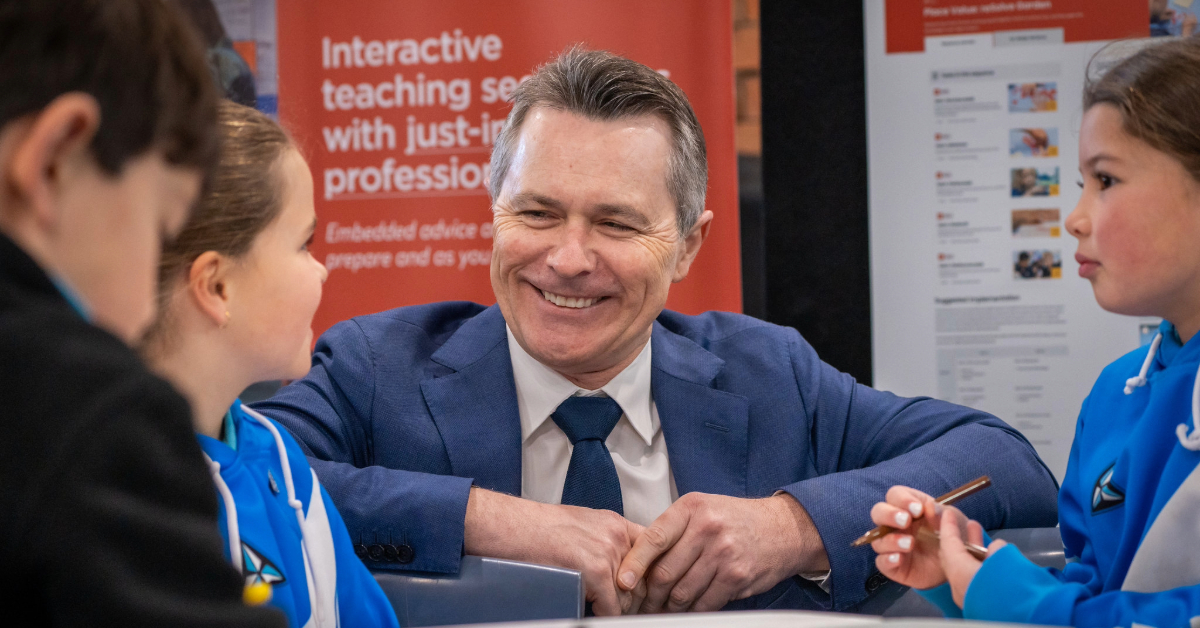
The Academy’s 70th anniversary year was a celebration of Australian science, where we honoured the Fellows elected to the Academy and recognised the outstanding contributions of Academy awardees.
Academy President Professor Chennupati Jagadish said the dedication and pioneering work of Australia’s high achievers continue to push the boundaries of knowledge, advance our nation and globe, and inspire future generations of scientists.
“The Academy was established to bring science to the service of the nation. This mission has not changed in 70 years – if anything, it has become more critical than ever.
“Our aim is to deliver sought-after scientific advice that influences Australians’ actions and contributes to global science,” Professor Jagadish said.
An example of the Academy’s influence was the recently announced government review of Australia’s research and development system.
“Our persistent push for change successfully argued the case for a wholesale review of Australia’s outdated R&D system,” he said.
Proposed changes to Australia’s defence trade controls legislation to support the AUKUS agreement would likely have had unintended consequences for scientists and Australia’s capacity to engage in international research. The Academy’s leadership, strategic science policy advice and sustained advocacy led to an exemption for fundamental research being included in the updated legislation, striking a better balance between addressing national security concerns and maintaining vital research collaborations that are in Australia’s national interest.
The year also saw the release of the decadal plan for Earth system science, which calls for the urgent establishment of a national agency to coordinate the science required to transform Australia’s response to climate change. This would ensure that the management of emerging climate risks in Australia and across our region are based on scientific evidence.
In the region, the Academy supported the establishment of the Pacific Academy of Sciences, which will give Pacific scholars agency and a voice in shaping their destiny. The Pacific Islands was the only region in the world that did not have its own learned academy and a local collective voice for science, despite the region experiencing profound impacts due to climate change.
We also partnered with the Australian Academy of Technological Sciences and Engineering, delivering $6 million in Australian Government grants to strengthen science and technology collaboration with our regional neighbours.
Closer to home, we convened experts across the agriculture, nutrition, and food innovation sectors for our annual symposium, Food Futures, held this year as part of the World Science Festival in Brisbane. And in December we released the mid-term review of our decadal plan for nutrition.
The Academy turned its attention to the development of Australian Science, Australia’s Future: Science 2035, a 10-year plan that will position science to support our national ambitions, due to be released in 2025.
“The Academy has a crucial role in making sure Australia’s approach to science is strategic, meets our national challenges and advances Australian interests locally and globally,” Professor Jagadish said.
And, importantly, we provided crucial input to the development or analysis of policy in Australia by making 30 submissions to government consultations and parliamentary inquiries.

Progressing our journey to reconciliation, we published our Innovate Reconciliation Action Plan which contains practical steps to respect and celebrate Traditional Knowledges of Australia’s First Nations Peoples to build a stronger, more innovative, and sustainable nation and world.
“Securing our nation’s future economic and social prosperity will be driven by embracing skills, knowledges and experiences from a diverse range of people,” Professor Jagadish said.
“Our work will recognise Traditional Knowledges in Australia’s scientific and technological knowledge systems.”
In November, we joined with the Royal Society of Canada and the Royal Society of New Zealand Te Apārangi at the inaugural Tri-Academy Partnership on Indigenous Engagement. The summit focused on cultural heritage in an era of reconciliation, providing opportunities for deeper understanding, knowledge sharing and connections between Indigenous scholars from the three countries, as well as non-Indigenous allies and stakeholders.
Over four days in September, Australia’s most influential scientists gathered for Science at the Shine Dome in Canberra to celebrate and honour outstanding achievements in science. New Fellows and award recipients from across 2023 and 2024 were recognised at the event, and researchers from all disciplines and career levels were able to present, share, network and collaborate.
The Academy’s annual public speaker series featured our iconic earliest Academy Fellows, as we traced our 70-year history from landmark discoveries to the present cutting edge of Australian science.
A joint symposium with the Academy of Law looked at whether the courts are keeping pace with scientific and technological discoveries, and in the ninth year of Falling Walls Lab Australia an eminent jury selected three early-career researchers to represent the nation at the international Falling Walls event in Berlin.
With the performance of Australian schools in science and maths recently in the spotlight, it’s timely that we released new education resources which will boost the confidence and capability of the nation’s primary school teachers to deliver Australia’s science and mathematics curriculum.
“The resources are full of research-based strategies to build teachers’ knowledge for teaching science and mathematics and can be adapted to meet the needs of the range of learners in the classroom,” Professor Jagadish said.
The Academy’s history of developing innovative education resources reaches back to 1967 with the Web of Life textbook, which was viewed as the most successful curriculum development project of its time in the world.

Set the table for summer with our Fellows’ reading and listening recommendations.
The Australian Academy of Science is an independent organisation of distinguished Australian scientists, championing science for the benefit of all. Find out more about the Academy’s mission, values and priorities in our strategic plan.
© 2025 Australian Academy of Science